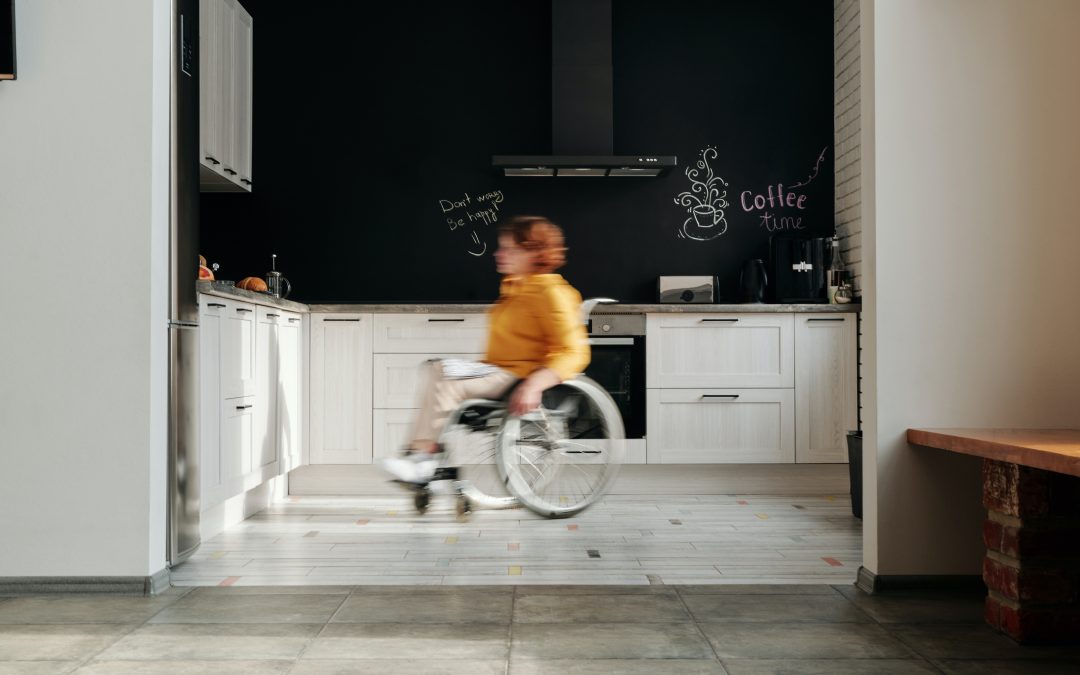I turned thirty last summer, which prompted an existential examination of my path thus far. I thought long and hard about living three whole decades with a disability that prevents me from walking, and the lessons I’ve learned that have helped me find meaning, purpose and joy.
These are some of them.
1. Smooth sidewalks are not to be taken for granted.
Sleek, smooth, well-paved sidewalks that don’t have cracks and potholes that make you feel like you’re on a jeep ride on a rocky mountain hill – so rare, yet so wonderful to cruise through using a wheelchair.
2. My wheelchair is my lifeline.
It’s hard for many to dissociate a wheelchair from the concept of struggle and hardship, yet without my wheelchair, I would actually be disabled, unable to access my life.
My wheelchair makes it possible for me to work, see the people I love, and travel to places I have long dreamed of. My body on its own can’t do these things; my wheelchair is my lifeline.
3. Sometimes, it is hard.
There are days where having a disability is difficult, physically, mentally and emotionally, and it is okay to accept that. We so often get placed on pedestals of strength and courage because we find many ways to thrive in spite of everyday obstacles that most people never have to face – but we are only human, and some days, it is hard.
Equipment breaks, places we wish to go are inaccessible and people assume things about our lives all the time – it can get exhausting and once in awhile, it’s healing to acknowledge it, whether just by reflection, venting to someone or journaling to understand our thoughts and feelings.
4. Humor is a disarming medicine.
Life is funny, in spite of all of its beauty, suffering and bliss. And one of the great things about living with a disability is the endless potential for humour. So many in the community have mastered the art of laughing at themselves – it’s wonderfully refreshing and can serve as a way to disarm the odd strangers that feel the need to throw questionable comments our way.
Humour is a universal way to remind ourselves that everything in life is temporary and that we don’t have to take ourselves too seriously – there is room for making fun of a situation, indulging in sarcasm and cold, dry one liners that border between absurdity and hilarity. Personally on the disability front, I find humour is a great and subtle way to let people know they have crossed a line and that you’re well equipped to handle it with confidence and laughter.
5. Inspiration or ordinary, I don’t really care anymore.
I used to get so upset when people, including strangers on the street, would drop that infamous line on me: “You’re so inspirational.”
It felt tacky, forced and disingenuous, and it never made sense that someone with so little knowledge about my life could insist that I’m somehow extraordinary.
After many years contemplating this subject, I finally decided that inspiration happens autonomously, not so much by choice. I thought about all the times that I felt inspired in my life and in every single case, it didn’t feel like a choice. When we hear a beautiful piece of music, we get goosebumps, not because we choose to, but because something about the melody or the words moves us. When we see strength and courage in a fellow being, we don’t need to look for it; it often speaks for itself. And if that’s true, then who am I to insist that I shouldn’t be inspiring merely for doing simple things? An ordinary moment for me may be someone’s first time witnessing someone with a disability doing that very thing – and if it moves them in some way, is that wrong?
6. I’m going to be objectified, whether I like it or not.
Disability remains taboo to this day. Unfortunately, this means that I will never fully escape being objectified. I have extended family members that pity me even though I’m a 30 year old woman who lives a full life, working, living independently, traveling, dating, cooking and more.
On my journey, I have learned that the perception of others is beyond my control, whether it’s extended family members, prospective romantic partners or strangers I encounter who simply don’t understand what it is like to live a life that is a little bit different. There are people who will always wish for me to “heal” in spite of my achievements and overall fulfillment in life and others who will see me as exceptional and brave simply for being out at a club with some friends.
While I hope that this will gradually continue to improve, I have come to understand that people are only equipped to meet you as far as their belief systems allow.
7. There are many kind people who are willing to help.
There is plenty of kindness and beauty in the people we encounter everyday, even if just momentarily. I have lost count of the number of times that friendly strangers have stepped into my life to make something just a little bit easier. Whether holding a heavy door open, picking up an item that I dropped on the ground or taking me up a flight of steps to get into an inaccessible venue, kindness can be found everywhere and in all parts of the world and it’s a beautiful thing.
After all, we are each on a personal journey that comes with its share of struggles and triumphs regardless of our abilities, and we should strive to uplift each other, even if it feels as effortless as a smile or holding a door open a few seconds longer.

About the Author
Nikoletta Erdelyi is a writer and poet from Toronto, fascinated by how we make meaning for absurdity. She is a philosophy nerd who loves to cook, collect fragrances and write poems about the unique bits of consciousness.
Latest on the blog
Does Winter Mean House Arrest for Disabled People?
This years snowstorm brought upon excellent opportunities to enjoy fresh and homemade ice-cream, along with the fun of tobogganing with friends and family. There is joy and beauty in watching the snowfall and spending some serious time binge watching romance with new...
What is AccessNow Verified?
What is AccessNow Verified? With over 1 million data points across 10,000 towns and cities in 107 countries, AccessNow is a trusted resource for accessibility information globally. Because of the trust and reliability we’ve built over the years, since 2022 over 1,000...
Podcast – Airline Accessibility: How Maayan Ziv Turned a Mangled Wheelchair Into Real Change
🎧 Listen to the full episode, Airline Accessibility: How Maayan Ziv Turned a Mangled Wheelchair Into Real Change, on Spotify or Apple Podcasts. Travel has always been part of Maayan Ziv’s life. But as she shares on Disability Rights, and Wrongs: The David Lepodcast by...




